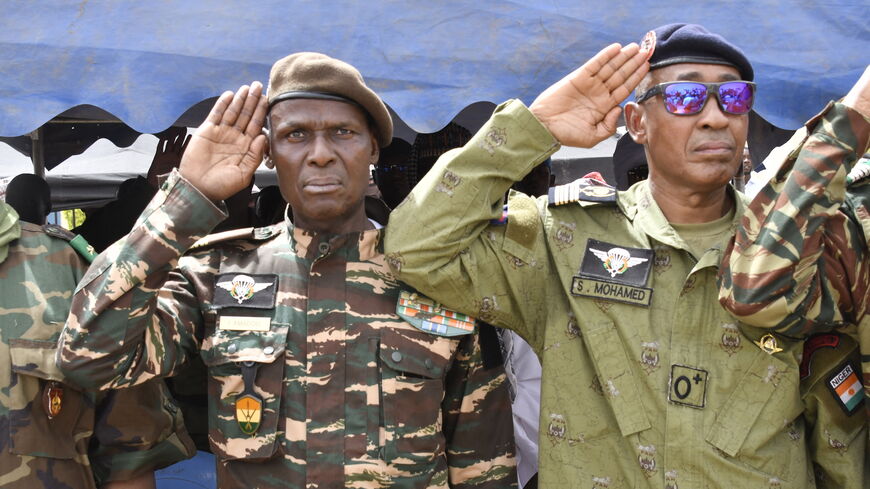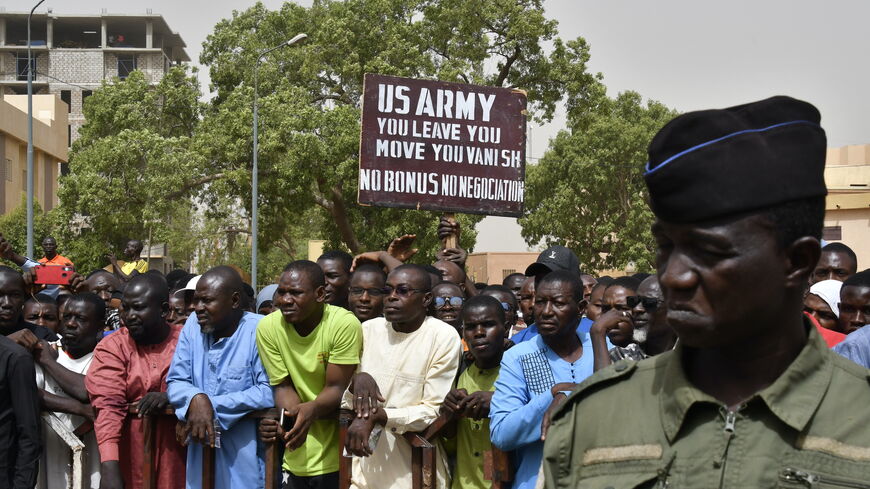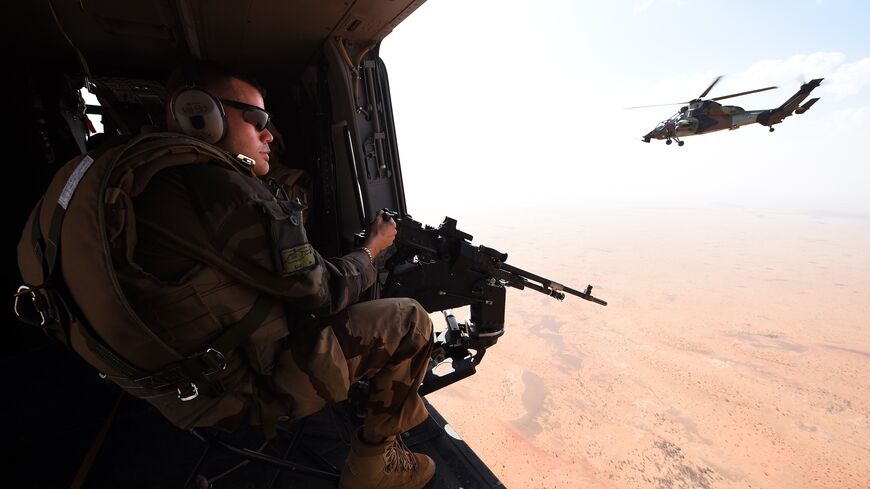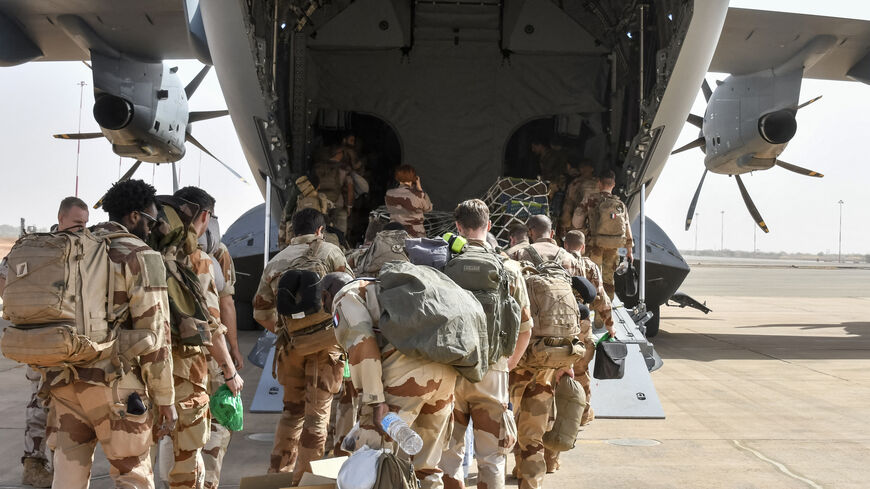Pentagon delegation heading to Niger to discuss US withdrawal
Hopes have faded in Washington that the roughly 1,100 American troops based at a remote drone base in central Niger will be allowed to remain in the country.
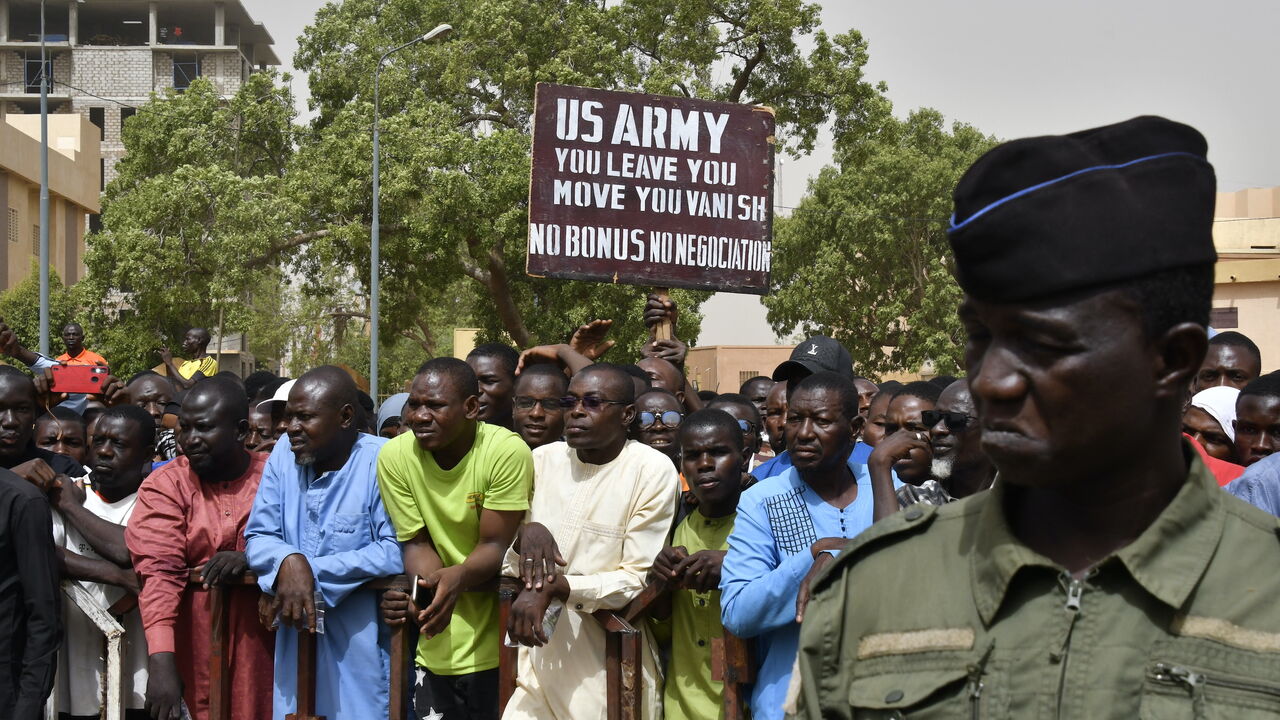
The Pentagon is planning to send a delegation to Niger’s capital later this week to finalize details of a phased withdrawal of US troops from the country at the demand of Niamey’s military junta, US officials said Monday.
The delegation, originally scheduled for late April, is now expected to depart later this week, Pentagon deputy press secretary Sabrina Singh told reporters on Monday.
“We are going to be executing an orderly withdrawal from Niger,” Singh said.
Why it matters: Plans for a phased withdrawal of US forces from Niger come months after the country’s ruling military junta announced it was severing its ties with the US military in mid-March.
State Department and Pentagon officials sought to pump the brakes on the announcement from Niamey, hoping to maintain access to the last remaining US drone base in West Africa as both Islamist insurgencies and Russian military influence gain ground across the Sahel region.
But hopes have faded in Washington that the roughly 1,100 American troops based in Niger will be allowed to remain in the country.
“We’ll make the most out of the situation that was presented to us, but the intent is in Niger to draw down to a level that the Nigerians can live with,” the Pentagon’s top civilian official overseeing special operations, Chris Maier, told CNN last week.
American troops in Niger consolidated at the remote US-built drone base, known as Air Base 201, outside of Agadez, as well as at Air Base 101 in Niamey following a military coup in the capital in July 2023, before some troops withdrew along with “non-essential” diplomatic personnel and contractors last year.
The US State Department only belatedly acknowledged the power grab — led by the head of the country’s presidential guard, 63-year-old Gen. Abdourahamane Tiani — as a coup last October, obliging the Biden administration to suspend joint operations and training, along with some $200 million in military aid.
US troops still have yet to withdraw, Pentagon officials said Monday while declining to announce any timeline for doing so. Officials attending the planned delegation to Niamey “are going to set those terms for for the orderly withdrawal,” Singh told reporters without elaborating.
Earlier this month, Reuters reported that Russian irregular forces had moved into a hangar at the far end of the US-built base, though Pentagon officials have stressed that hasn’t pose a security threat to American soldiers there.
What’s next: The delegation originally scheduled for the end of April was to be led by US Ambassador to Niger Kathleen FitzGibbon and AFRICOM’s director of strategy, engagement and programs, Maj. Gen. Kenneth Ekman.
Assistant Secretary of Defense for Special Operations and Low-Intensity Conflict Chris Maier and the Joint Staff’s director for joint force development, Lt. Gen. Dagvin Anderson, were scheduled to lead follow-on meetings with junta leaders in Niamey. It remains unclear why the original delegations were not held as scheduled last month.
US Africa Command did not immediately return Al-Monitor’s request for comment. Ekman, AFRICOM’s J5, has already been in Niamey for “a couple of weeks,” one US official said.
Know more: The US military withdrew its contingent of roughly 60 special operations personnel from neighboring Chad earlier this month after a government official in N’Djamena penned a letter to the US embassy threatening to cancel the status of forces agreement between the two countries.
Pentagon officials have downplayed the departure as temporary and have suggested they intend US troops to return following Chad’s elections.
Elsewhere in the Sahel region last month the ruling junta in Mali said its forces had killed a senior Islamic State group commander of Moroccan origin — nom-de-guerre Abu Huzaifa — who was linked to an October 2017 ambush in southwestern Niger that resulted in the deaths of four US Army Green Berets, four Nigerien troops and their interpreter.
The US State Department had a $5 million bounty out for information leading to his kill or capture.

